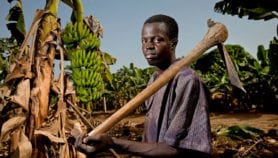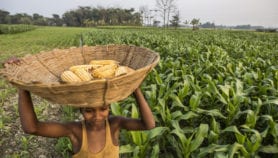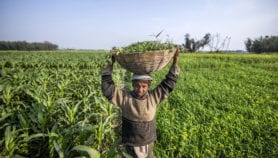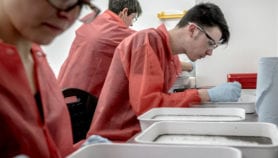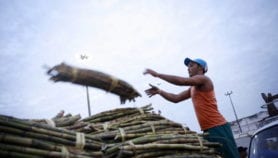By: David Dickson
Send to a friend
The details you provide on this page will not be used to send unsolicited email, and will not be sold to a 3rd party. See privacy policy.
A broad coalition of organisations — ranging from multinational corporations and international agencies to environmental activists and farmers rights groups — have agreed to participate in the largest-ever global dialogue on how to meet the world’s future food needs.
Meeting in Budapest last week, representatives of such organisations committed to taking part in a two-and-a-half year review of how science and technology can be used to increase food production in ways that are both socially acceptable and environmentally sustainable.
The review, which it is estimated would cost US$15 million to prepare, is planned to be carried out by an intergovernmental body administered by a multi-stakeholder bureau. Planning is being co-ordinated by Robert Watson, the chief scientist at the World Bank.
Funding is now being sought from the bank and other UN agencies. According to Watson, if this fundraising is successful, the review could start operating early next year.
The multi-stakeholder approach being adopted is similar to that used by the Intergovernmental Panel on Climate Change (IPCC), which Watson headed from 2000 until 2002.
The hope is that, as with the experience of the IPCC, this approach will reduce the conflict that surrounds much of the current debate about future food production, particularly in areas such as the role that should be played by genetically modified crops in the developing world.
“Our goal is develop a consensus on what is known and unknown, explain different points of view, and identify the uncertainties," says Watson.
Unlike the work of the IPCC, however, which has at its core the desire to find a scientific consensus on the nature of the hazards presented by global warming, the new assessment will have a greater emphasis on more value-driven topics, such as the relative contributions of traditional and modern knowledge to agricultural practice.
Part of this, however, will — as with the IPCC — be an attempt to reach agreement between all stakeholders on the basic parameters of the debate on future food production.
"This is a first and unique chance for a global bottom-up check on what is really needed and what is not, to ensure food sovereignty for all, and the survival of the planet," says Benedikt Haerlin of Greenpeace International.
The proposed assessment has been welcomed by Mohamed Hassan, executive director of the Third World Academy of Sciences, who says that it will "help the scientific communities in their efforts to find innovative science-based solutions to the problems of hunger, poverty, and food insecurity".






